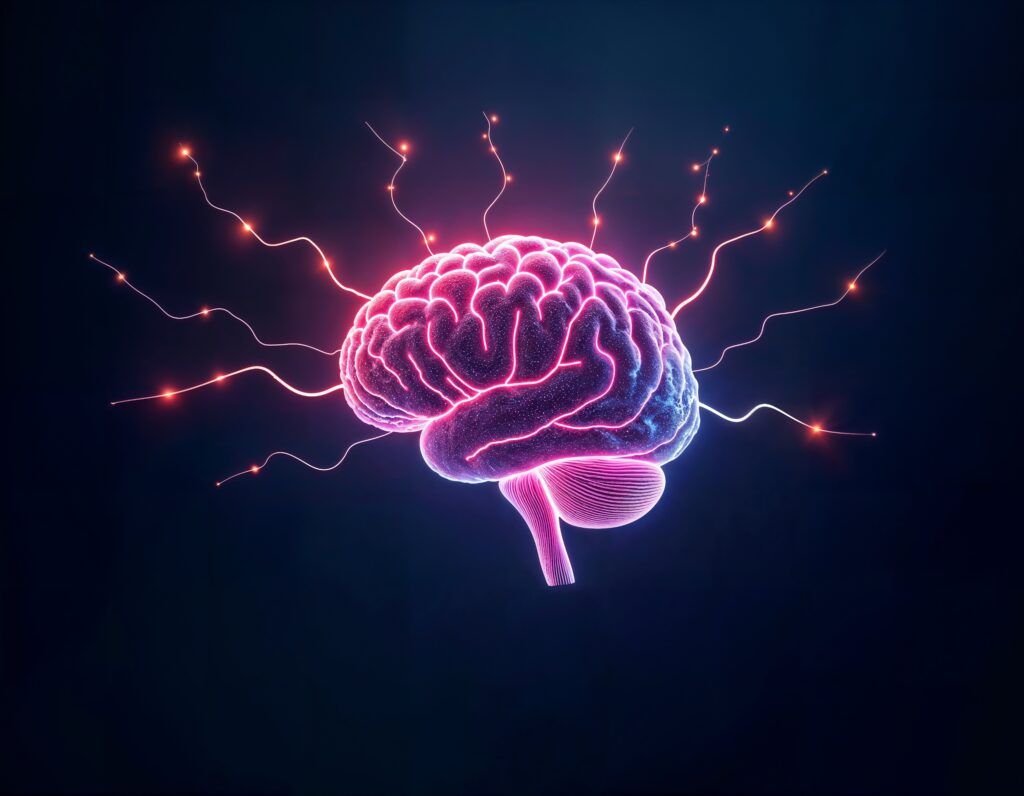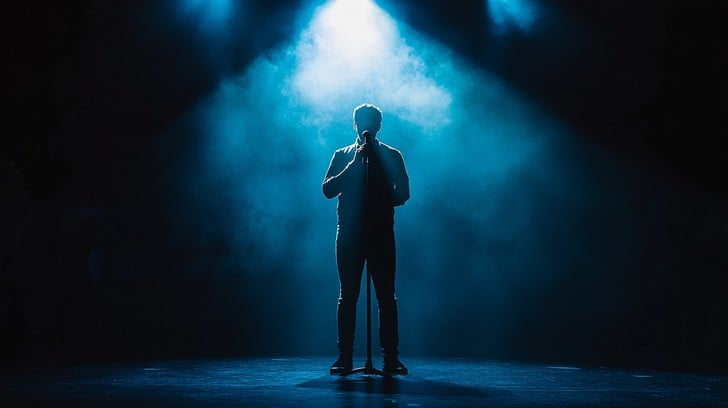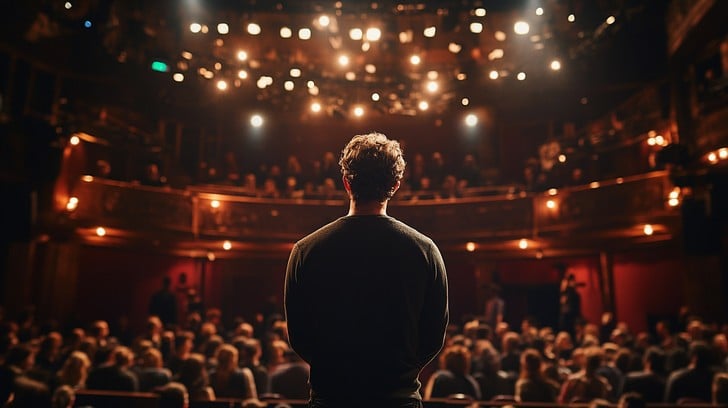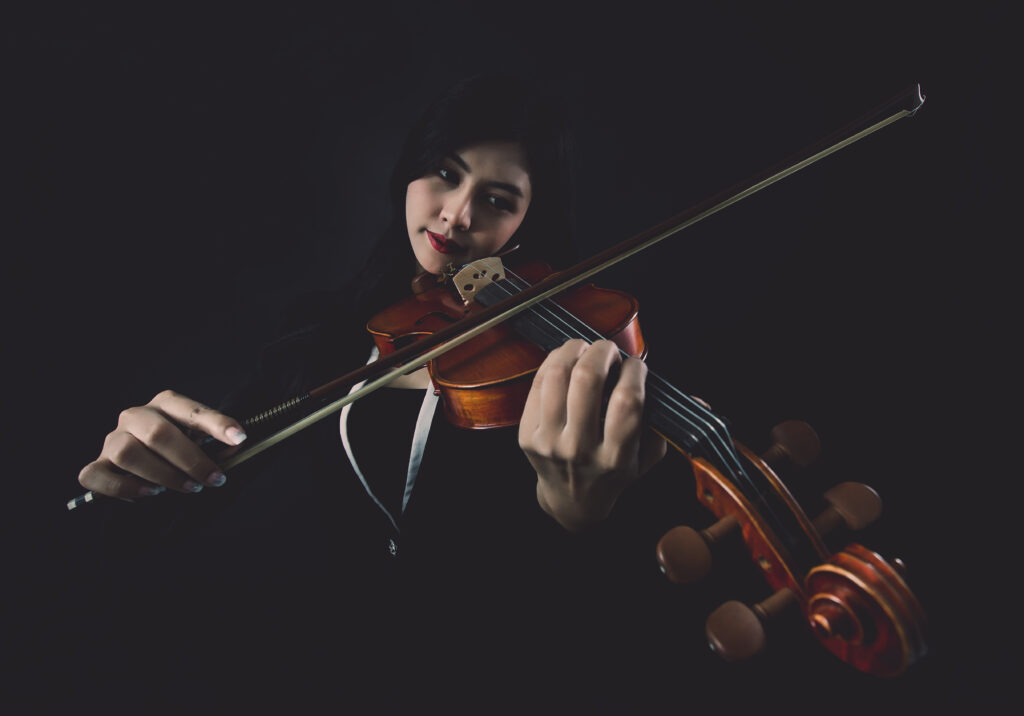The Science Behind Stage
Fright — And How to Overcome It
Explains the psychology of performance anxiety and practical ways to beat it.
- Table of Contents
- 1. Introduction
- 2. Why Stage Fright Exists: A Brain Designed for Survival
- 3. The Hidden Gift of Stage Fright
- 4. The Psychology of Being Seen
- 5. Why do we experience stage fright so intensely?
- 6. How to Work With It, Not Against It
- 7. Real-World Examples
- 8. Why This Matters for Performers
- 9. Final Thoughts
Introduction
Every artist knows that moment: the calm before going on stage, the lights shinning on you, and the silence of anticipation. And then… your heart pounds. Some refer to it as fear. Science calls it survival. But what if stage fright isn’t an opponent to be vanquished but a collaborator to be embraced?

Why Stage Fright Exists: A Brain Designed for Survival
Your brain’s wiring is thousands of years old. Before the evolution of society’s stages and spotlights, standing exposed in front of others could mean risk—exile, danger, ostracization. Today, your brain cannot distinguish between facing an audience and facing a pack of wolves.
That’s why in these situations, your amygdala (the brain’s security system) says:
Increased heart rate → pumps oxygen to muscles so you’re ready for action.
Sweaty palms → Enhanced ability to cool body for better endurance.
Shaky breath → rapid oxygen exchange for quick action.
It’s not failure. It’s preparation.

The Hidden Gift of Stage Fright:
What feels like panic is actually a surge of power. The adrenaline that causes shaking also:
Sharper memory recall (your lines are literally more accessible).
Increased energy (you can project further, move bigger).
Attention is narrowed (you focus on what matters).
Think of stage fright as your dependable stage partner: it walks in with you every single time, not to mess up your performance but to elevate you beyond what you did during practice.

The Psychology of Being Seen:
Why do we experience stage fright so intensely? Humans are wired for belonging. Standing on stage means all eyes are on you, and your brain knows that.
But here’s the twist: audiences are not hunters waiting to pounce. They are partners. Most people want you to succeed and are ready to connect with you in that moment. Once you realize this, the spotlight stops being about you and more about your audience.

Why do we experience stage fright so intensely?
Humans are wired for belonging. Standing on stage means all eyes are on you, and your brain knows that.
But here’s the twist: audiences are not hunters waiting to pounce. They are partners. Most people want you to succeed and are ready to connect with you in that moment. Once you realize this, the spotlight stops being about you and more about your audience.
How to Work With It, Not Against It
1. Befriend the Butterflies
Instead of squashing the butterflies, harness them so they can soar. That energy flows into momentum, propelling you toward your first line or motion.
2. Anchor the Body
Plant your feet, relax your jaw, or press your fingertips together. They tell your nervous system that you are steady. I am safe.
3. Rituals That Rewire
The brain thrives on routine. Create a personal pre-performance practice.
Humming a basic tune
Repeating a mantra such as “I am ready”
Take three deep, slow breaths.
Eventually, your brain will start associating the ritual with how you are going to feel on stage.
Refocus the Spotlight
Many feel exposed when the lights hit. But neuroscience says the spotlight is actually on the story, character or music. You are not being judged, you are being observed.
5. Let the Surge Elevate You
Adrenaline reaches its peak within minutes and then plateaus. If you can ride the first wave, it becomes presence, charisma, and stage power. When trembling then turns into flow – the stage when performance seems seamless.

Real-World Examples
A violinist once defined stage fright as electricity coursing through the body, which makes the music soar when embraced.
Actors often talk about how their best performances happen when they are the most nervous because fear sharpens every choice through adrenaline.
Speakers revealed that the voice shaking at the beginning turns into passion as they lean into the moment.
They’re not mistakes in control but rather indications that you are fully alive when you perform.

Why This Matters for Performers
Stage fright means you care. You care about your art, your audience, and their experience. The very thing that makes you feel nervous is the same thing that gives you power: your vulnerability. Science merely tells us what it is, but performance makes it so much more.
Final Thoughts
Stage fright is not a flaw to erase but a force to embrace. It’s the body saying, “This moment matters. “ And when you work with that biology—through breath, ritual, and reframing—not only do you overcome stage fright.
You turn it into electricity.
The kind that lights up the stage.
The kind that captivates audiences.
The kind that lingers long after the curtain falls.
Ready to Level Up Your Performance?
Master these warm-ups with personalized coaching. Get weekly acting drills, technique breakdowns, and performance tips delivered to your inbox.
